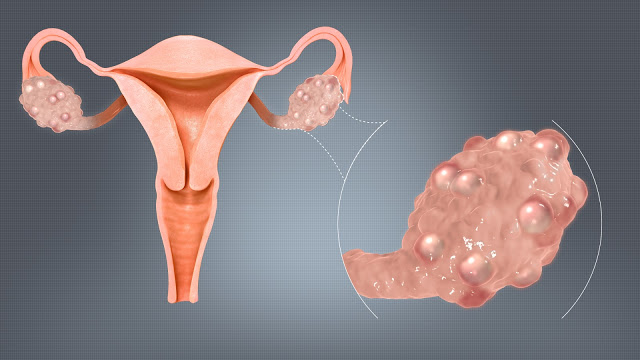 |
| 4 Essential Things About Ruptured Ovarian Cyst Every Woman Should Know |
Ruptured ovarian cyst sounds
creepy because it can lead to dangerous consequences. Every woman may develop
ovarian cysts and therefore they are automatically at the risk of ruptured
ovarian cyst. That’s why it’s crucial to know the signs and symptoms of a
ruptured ovarian cyst that can actually be pretty different.
In some cases, a woman might not
even know she has one but in other cases, a ruptured ovarian cyst will manifest
itself in unpleasant signs. Let’s take a look at five essential things every
woman needs to know about ruptured ovarian cysts, their signs, and treatment.
1. What Is A Ruptured Ovarian Cyst?
Ovarian cysts are benign
fluid-filled pockets in an ovary that are usually harmless. They usually
disappear on their own but if a cyst becomes large it can rupture and thus requires
immediate treatment.
Your ovaries may develop
different types of
cysts. In most cases, ovarian cysts occur in relation to ovulation (a
process in which an ovary releases an egg for possible fertilization). These
types of cysts are called functional cysts, and there are two kinds of them:
follicular and corpus luteum cysts.
Follicular cysts occur when a
follicle doesn’t burst to provide ovulation and continues to grow. Another kind
of cysts is called corpus luteum cysts. The corpus luteum can fill with fluid
which caused corpus luteum cysts to form.
These functional cysts usually go
away on their own, approximately within two to three menstrual cycles.
Moreover, women often don’t even know they develop these cysts. However,
problems may occur if you have different types of ovarian cysts.
2. Symptoms And Manifestations Of A
Ruptured Ovarian Cyst.
In some cases, ovarian cysts
rupture accidentally or due to high-intensity physical activity, for instance,
during sexual intercourse. During rupture, the fluid inside a cyst gets into
your pelvic cavity, where it’s reabsorbed over time. Sometimes, a woman may not
even feel a cyst as it bursts. However, in other cases, she will.
In order to recognize a ruptured cyst and avoid complications that
might appear, it’s necessary to know its symptoms. So, here are nine main signs
your ovarian cyst has ruptured:
1. A Feeling Of Fullness Or
Heaviness In Your Belly
2. Dull Or Sharp Pain In The
Lower Abdomen
3. Pain Along With High Fever
4. Vomiting
5. Bloating
6. Weakness
7. Chilly Skin
8. Rapid And Shallow Breathing
9. Vaginal Bleeding
Many of these symptoms doesn’t
mean you need to worry. If you have slight pain or bloating, you are safe.
However, in some cases, a ruptured ovarian cyst might result in something
serious and you need to turn to a doctor as soon as possible. High fever, vomiting,
weakness, rapid and shallow breathing, chilly and clammy skin are signs that
require attention.
There are so many things that
have similar signs, therefore if you feel uncomfortable and notice some
changes, visit your gynecologist
to find out the root cause of your symptoms.
3. Risk Factors For A Ruptured Cyst.
One of the main risk factors for
a ruptured cyst is certain types of cysts. Some of them (for example,
cystadenoma, dermoid cysts, endometriomas) are more likely to enlarge and thus
are more prone to rupture.
4. Treatment Options For A Ruptured
Cyst.
Treatment options may vary
depending on your type of cyst and your symptoms. In some cases, a doctor might
prescribe you pain medication or surgery. When the root cause of a ruptured
cyst is known, for instance, endometriosis, the
decision to perform surgery might be more likely. Cysts that concur due to
endometriosis often cause prolonged bleeding, which might be painful and even
harmful. If you require surgery for a ruptured ovarian cyst, it may be
performed through laparoscopy and depends on your case.
